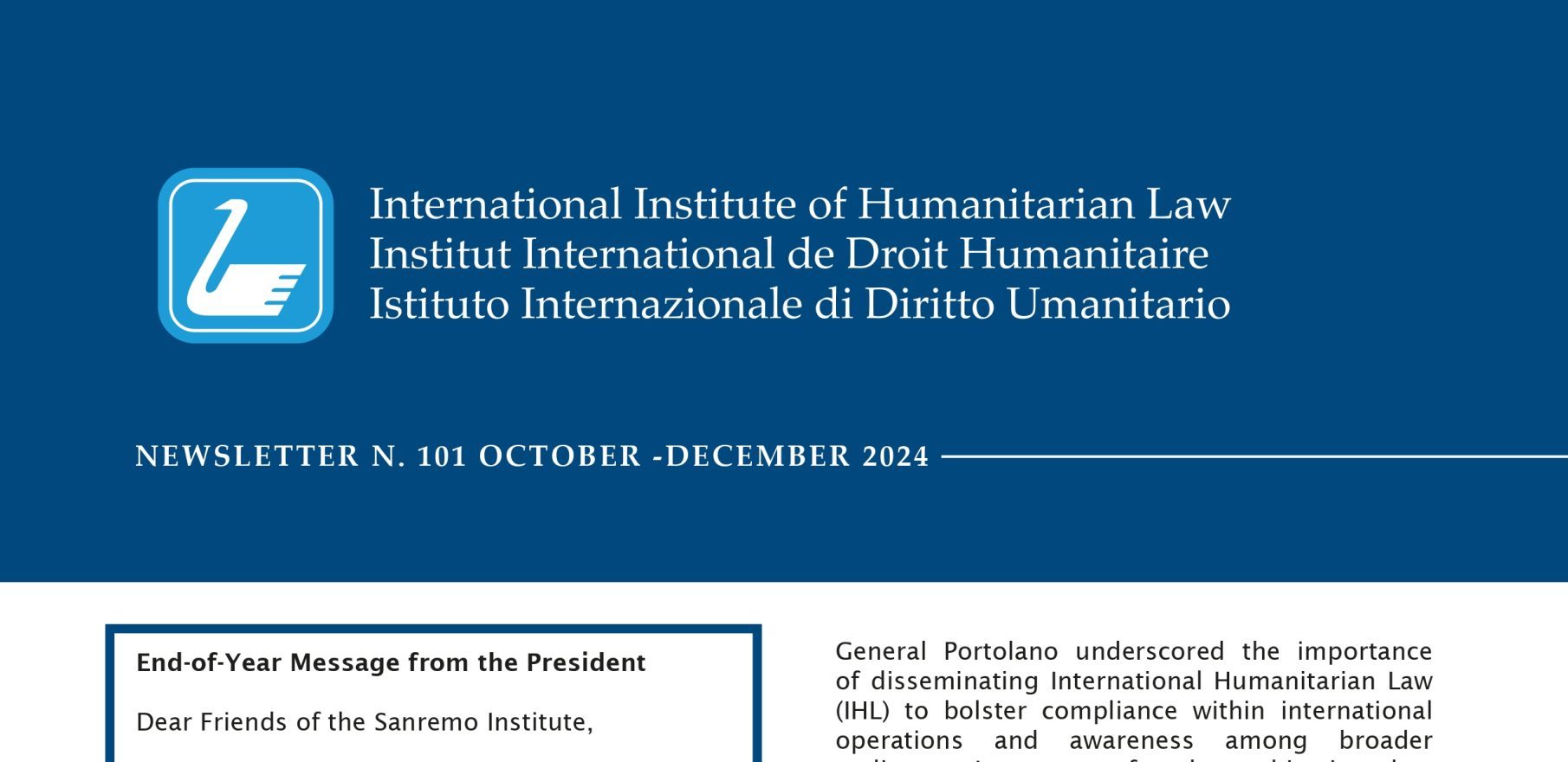The International Institute of Humanitarian Law is an independent institution having as its core statutory mission the promotion and dissemination of the principles and rules of international humanitarian law, international refugee law, and international human rights law.
In fifty years, since its creation, thousands of military officers representing nearly all the nations in the world have attended its training courses in a neutral spirit of good faith and meaningful humanitarian dialogue.
The Sanremo Institute expresses its deepest concern before the reports of killings, taking of hostages, and generalised violence impacting both the Israeli and Palestinian civilian populations in the south of Israel and the Gaza Strip, calling on the parties to urgently pursue all appropriate means of a peaceful settlement.
The Sanremo Institute recalls that the existence of a consolidated international legal framework for the regulation of the conduct of hostilities, established primarily but not exclusively by means of the Geneva Conventions of 1949 and Additional Protocols of 1977, is to be considered a paramount binding milestone for all parties to an armed conflict, regardless of their nature, structure or respective features. Deliberate attacks against the civilian populations, targeting of civilians or civilian objects, taking of hostages, mistreatment, torture and killing of prisoners of war, along with many other heinous acts, constitute serious violations of the international law of armed conflict and, thus, war crimes.
The Institute reminds all the parties involved that compliance with the fundamental IHL principles of humanity, distinction between civilians and combatants and civilian objects and military objectives, proportionality and precaution, and prohibition of causing unnecessary suffering, cannot be considered optional, as those principles are mandatory legal boundaries for all actors taking part in hostilities.
The Institute equally recalls the obligations of all parties, according to the existing international legal framework and instruments, to provide adequate protection to all vulnerable groups that have been forced to flee, leave their home and/or region as a direct or indirect result of the conflict, generalised violence or human rights violations.


![New vacancy: Junior Collaborator – Special Projects Department [CLOSED]](https://iihl.org/wp-content/uploads/2022/09/vacancies.png)
